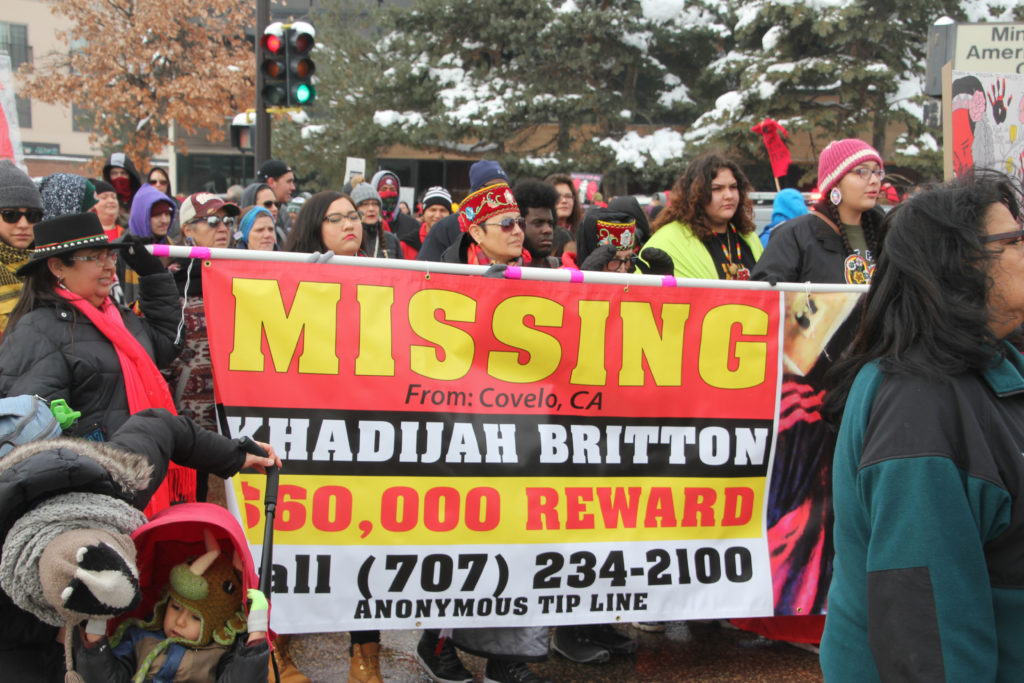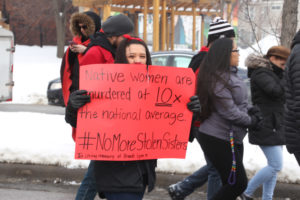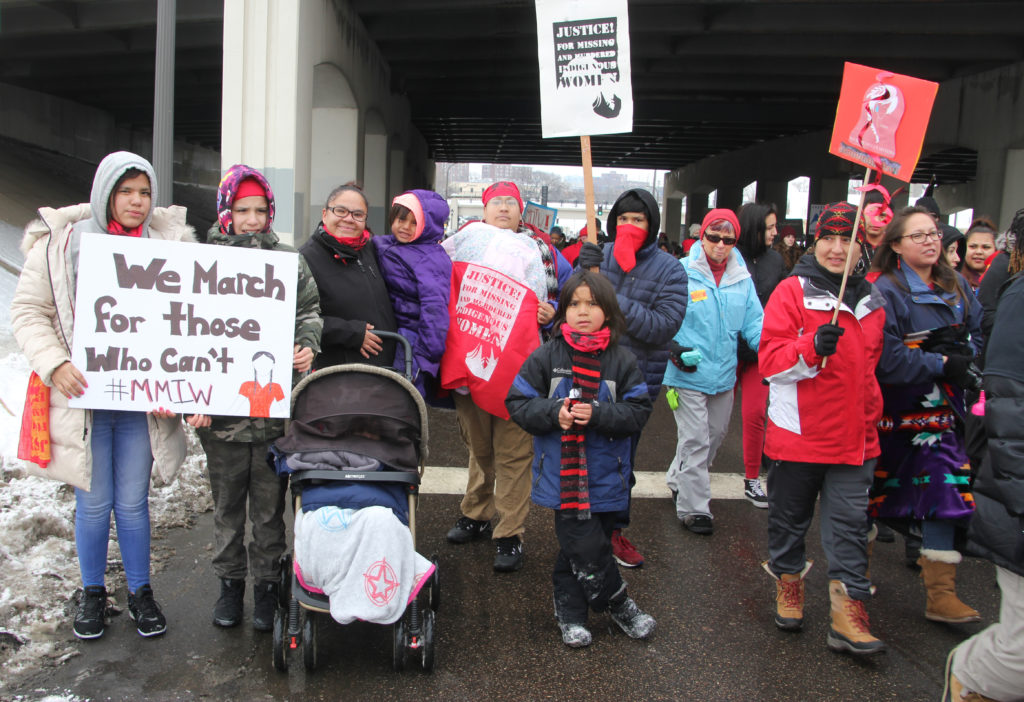by Tesha M. Christensen

Over 1,200 people braved the winter weather to march for missing and murdered Indigenous women on Feb. 14, 2019. Twenty-nine-year-old Amber Brunelle, who works in South Minneapolis, was walking to raise awareness of this issue. She pointed out, “Most cities don’t have a number on how many Indigenous women are missing in this country.” She is pushing for policy changes that will pinpoint why so many Indignous woman are targeted and what can be done to fix the problem. Brunelle was walking in memory of her friend Brandi, who was murdered 1.5 years ago. “We’re all part of the same life. We all live here,” Brunelle said. “I just want the violence against Indigenous women and men to stop.”
Organized by Minnesota Indian Women’s Resource Center with help from the Minnesota Indian Women’s Sexual Assault Coalition and others, this year’s walk was filmed by TPT-Twin Cities PBS for an upcoming documentary. All My Relations Arts brought equipment so that participants could create screen prints stating “Justice! For Missing and Murdered Indigenous Women” and “Bring Her Home,” and then wear the red fabric during the walk. Stations set up inside the Minneapolis American Indian Center, where the walk began and ended, educated attendees on the sexual violence and sex trafficking issues facing Native peoples in North America.

TESHA M. CHRISTENSEN
Twenty-nine-year-old Amber Brunelle, who works in South Minneapolis, was walking in memory of her friend Brandi Lynn, who was murdered 1.5 years ago. “I just want the violence against Indigenous women and men to stop,” Brunelle said.
Twenty-nine-year-old Amber Brunelle, who works in South Minneapolis, was walking in memory of her friend Brandi Lynn, who was murdered 1.5 years ago. “I just want the violence against Indigenous women and men to stop,” Brunelle said.
The National Crime Information Center reports that, in 2016, there were 5,712 reports of missing American Indian and Alaska Native women and girls, although the U.S. Department of Justice’s federal missing persons database, NamUs, only logged 116 cases.
And no research has been done on rates of such violence among American Indian and Alaska Native women living in urban areas despite the fact that approximately 71% of American Indian and Alaska Natives live in urban areas, pointed out a study done by the Urban Indian Health Institute in 2018.
For Kristin Jones, these statistics are more than numbers. Her mother, Delma Elizabeth Hardy, went missing when she was six. It took 12 years for the family to find out the pregnant woman had been murdered and buried in Chicago, and to bring her body home. Authorities wouldn’t take a missing report when the 23-year-old mother of three from Ponemah, Minn. went missing, pointed out Jones.
“Our people are murdered and missing every day,” remarked Jones’ aunt, Melody Johnson. “Law enforcement is no help.”
Jones, her five children, Johnson and other family members participated in the Feb. 14, 2019 walk to make sure women like Hardy are not forgotten.

No comments:
Post a Comment